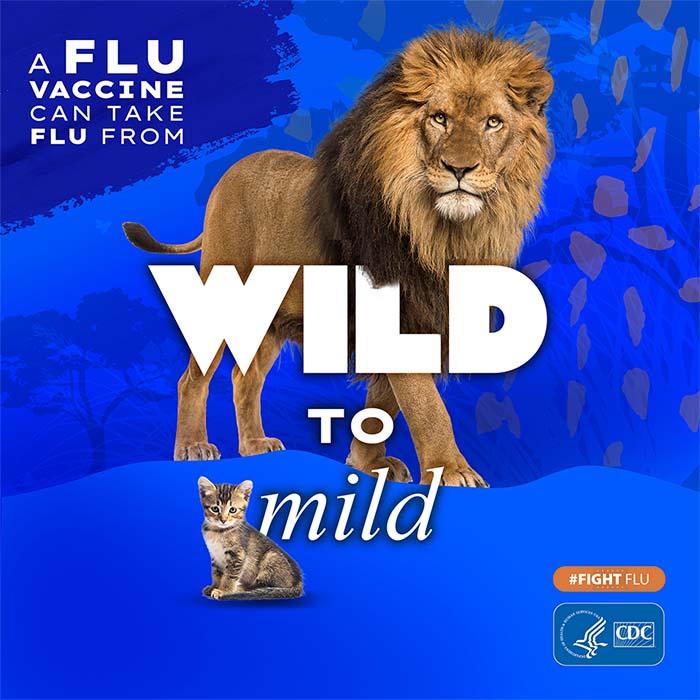Recombinant Influenza (Flu) Vaccine
What is Recombinant Flu Vaccine?
Recombinant influenza (flu) vaccines are produced using recombinant technology. This method does not require an egg-grown vaccine virus and does not use chicken eggs in the production process.
Recombinant flu vaccine was first licensed by the FDA in the United States in 2013. Currently, the recombinant flu vaccine and the cell culture-based flu vaccine are the only egg-free flu vaccines licensed for use in the United States.
There is one quadrivalent recombinant flu shot (Flublok Quadrivalent) available this season.
How does Recombinant flu vaccine differ from the other approved flu vaccines?
Recombinant flu vaccines do not use the flu virus or chicken eggs in the manufacturing process. More information is available at How Influenza (Flu) Vaccines Are Made.
Who can get Flublok Quadrivalent?
Flublok Quadrivalent is licensed for use in people 18 years and older.
Who should not get Flublok Quadrivalent?
People who are not within the FDA-approved age range (those younger than 18 years),those who have had severe allergic reactions to any ingredient of the vaccine, or who have had an allergic reaction to a recombinant flu vaccine should not get Flublok Quadrivalent. Some people who have had an allergic reaction to other kinds of flu vaccines (other than recombinant influenza vaccines) might be able to get Flublok Quadrivalent.
What are the possible benefits of recombinant flu vaccines?
Recombinant flu vaccine (brand name: Flublok Quadrivalent) is one of the three vaccines that are preferentially recommended for people 65 years and older because a review of existing studies suggested that, in this age group, these vaccines are potentially more effective than standard dose unadjuvanted flu vaccines. Other possible benefits of recombinant vaccine include that this vaccine technology is not dependent on an egg supply so the manufacturing process might be faster than that of egg-based vaccines in the event of a pandemic or shortage of the eggs needed to grow influenza viruses. This process is not limited by the selection of vaccine viruses that are adapted for growth in eggs. It also avoids mutations that can occur when viruses are grown in eggs, which can sometimes affect how well the finished vaccine works.
Learn more about the recombinant flu vaccine manufacturing process on CDC’s How Flu Vaccines are Made.
- What is Recombinant Flu Vaccine?
- How does Recombinant flu vaccine differ from the other approved flu vaccines?
- Who can get Flublok Quadrivalent?
- Who should not get Flublok Quadrivalent?
- What are the possible benefits of recombinant flu vaccines?
- Are any of the available flu vaccines recommended over others?
- What if a preferentially recommended flu vaccine is not available?
- Is this vaccine safe? Are there any side effects that could occur?
- Recommendations for Vaccination of People with Egg Allergy

Recombinant flu vaccines production does not require an egg-grown vaccine virus and does not use chicken eggs at all in the production process.
Yes, for some people. There are three influenza vaccines that are preferentially recommended for people 65 years and older. These are Fluzone High-Dose Quadrivalent vaccine Flublok Quadrivalent recombinant Influenza vaccinea nd Fluad Quadrivalent adjuvanted influenza vaccine. This recommendation was based on a review of available studies which suggests that, in this age group, these vaccines are potentially more effective than standard dose unadjuvanted influenza vaccines. There is no preferential recommendation for people younger than 65 years.
If none of the three influenza vaccines preferentially recommended for people 65 years and older is available at the time of administration, people in this age group should get any other age-appropriate influenza vaccine instead.
Is this vaccine safe? Are there any side effects that could occur?
In clinical studies, the safety of recombinant flu vaccines was comparable to that of other injectable flu vaccines. The most common side effects reported after receipt of Flublok Quadrivalent were similar to those reported for other injectable vaccines and include pain and tenderness at the injection site, headache, fatigue, and muscle or joint aches.
For more information see the Flublok Quadrivalent package insert.
Recommendations for Vaccination of People with Egg Allergy
People with egg allergy may get any vaccine (egg-based or non-egg-based) that is otherwise appropriate for their age and health status. Previously, it was recommended that people with severe allergy to egg (those who have had any symptom other than hives with egg exposure) be vaccinated in an inpatient or outpatient medical setting. Beginning with the 2023-2024 season, additional safety measures are no longer recommended for flu vaccination of people with an egg allergy beyond those recommended for receipt of any vaccine, regardless of the severity of previous reaction to egg. All vaccines should be given in settings where allergic reactions can be recognized and treated quickly.
